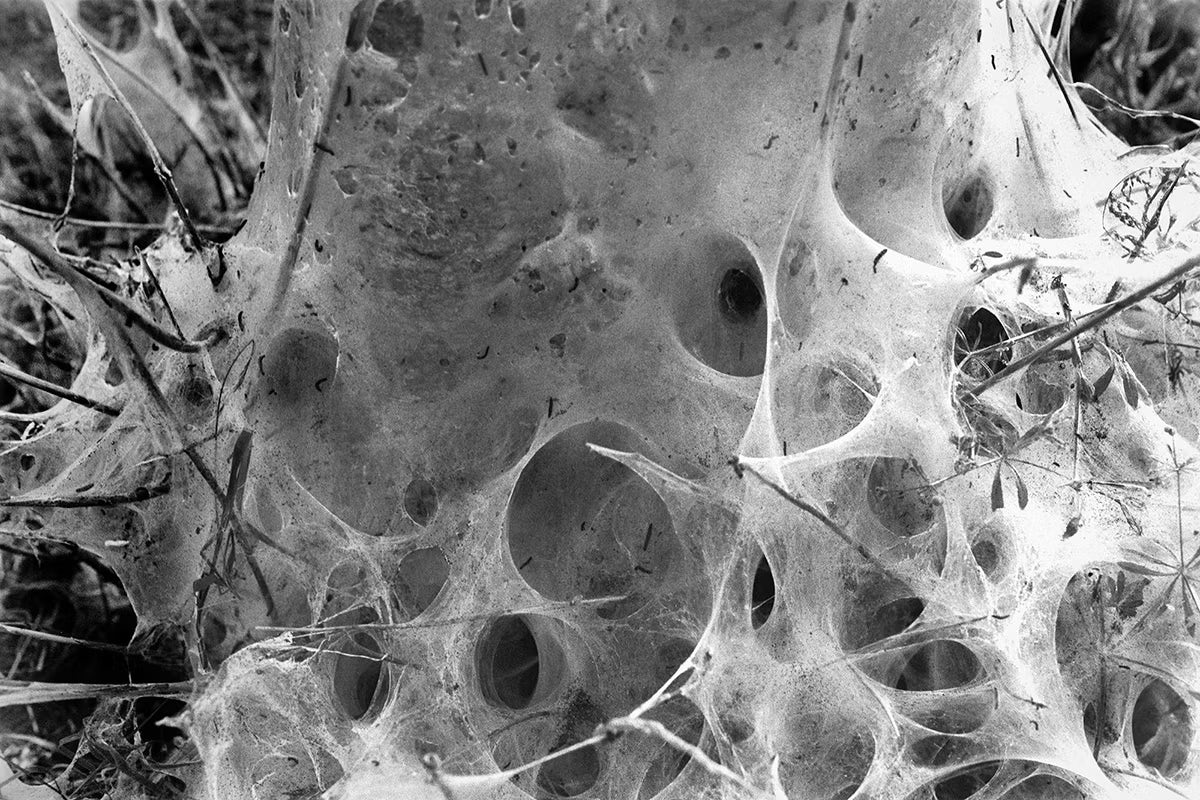The creatives left coping with long Covid
CR talks to some creatives who are sufferers of long Covid, and discusses how it is impacting their lives and work
Art critic Gabrielle de la Puente, half of The White Pube, signed a contract with her colleague, Zarina Muhammad, to work together on a book in December 2020. One month later, De la Puente caught Covid, which confined her to bed. A long, convoluted journey of misdiagnosis followed.
It was only after an even worse second dose of Covid, a diagnosis of postural tachycardia syndrome (PoTS), and much bed writing that Poor Artists hit the shelves in April last year to critical acclaim. “Because I was so ill, everything was so slow,” De la Puente recalls. “[The book publishers] were incredibly understanding. But it was up to us to produce it. We needed to change how we did it because I was in bed so much.”
De la Puente is one of many creatives for whom the pandemic can’t be a thing of the past. Not only is long Covid extremely physically draining, often sceptical attitudes towards the disease mean the estimated two million people living with the illness in the UK often feel forgotten, unheard, and isolated.
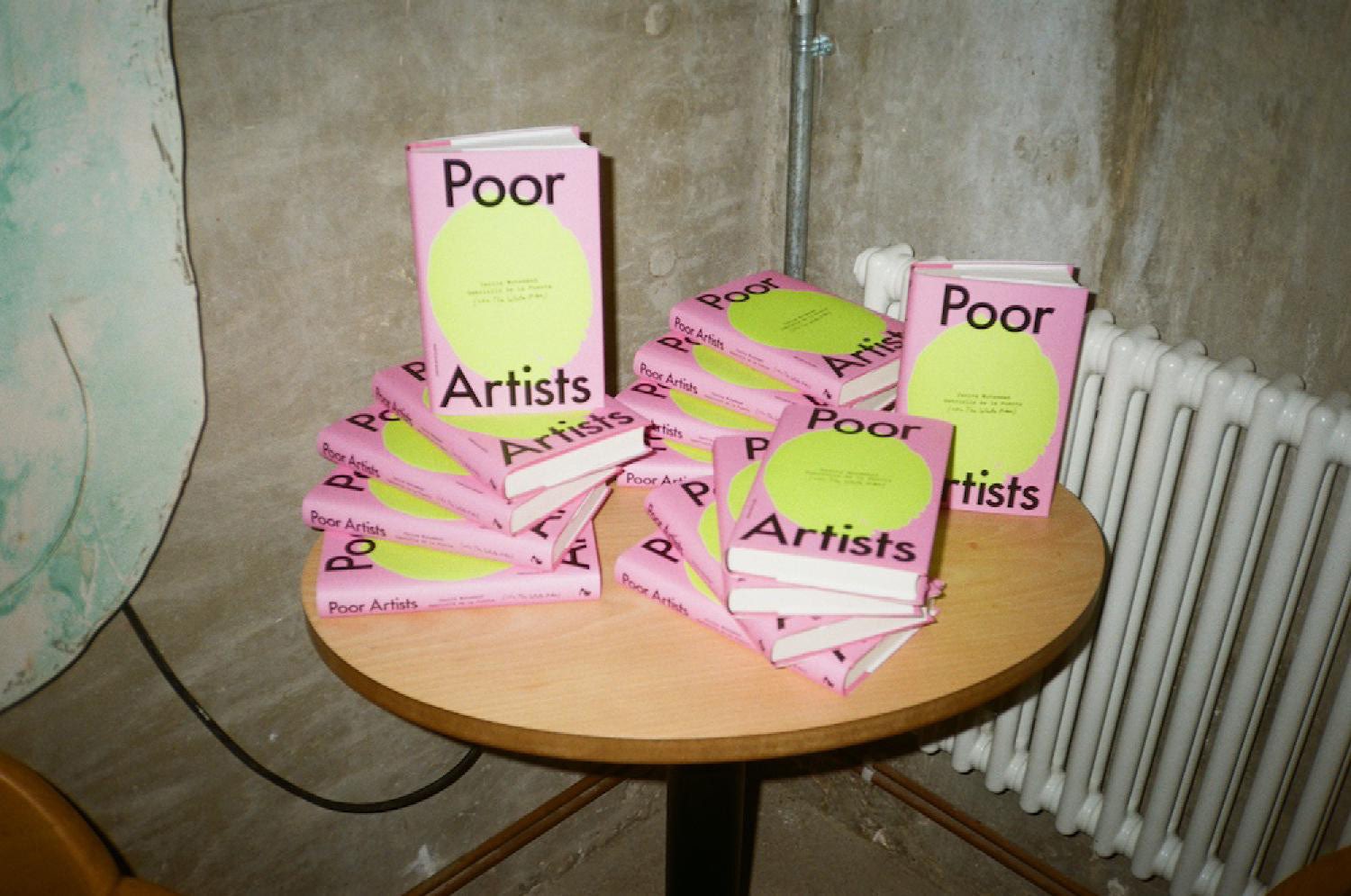
The alarm bells rang for freelance investigative features journalist Katie Baskerville a year after she contracted Covid when she still wasn’t feeling 100% better. “Week by week, my usual daily activities would slowly drain me of energy,” she recalls. “I would get sick easily. My hands would prickle with nerve pain. My periods stopped and became irregular after a long time spent getting them regular, as I have polycystic ovary syndrome (PCOS). My sleep was never restful and was hard to catch. Everything felt like it was sucking the life out of me.”
Today, long Covid limits how Baskerville can spend her time. Her top priority is work, where she writes about health, sex and relationships for British Vogue and Cosmopolitan. But that comes to the detriment of basic self-care tasks like washing, housework, home-cooked meals or going outside.
Navigating the symptoms with a taxing career isn’t easy. “I am getting support from the Long Covid Clinic and the CFS/ME clinic to help me create better pacing strategies. I also do CBT therapy and take several medicines to help me manage the pain,” she says. “I already live with conditions prone to painful inflammation, such as PCOS and endometriosis, which means I’m constantly having to battle chronic costochondritis (aka ‘Covid grip’) in addition to constantly feeling like I’m poisoned.”
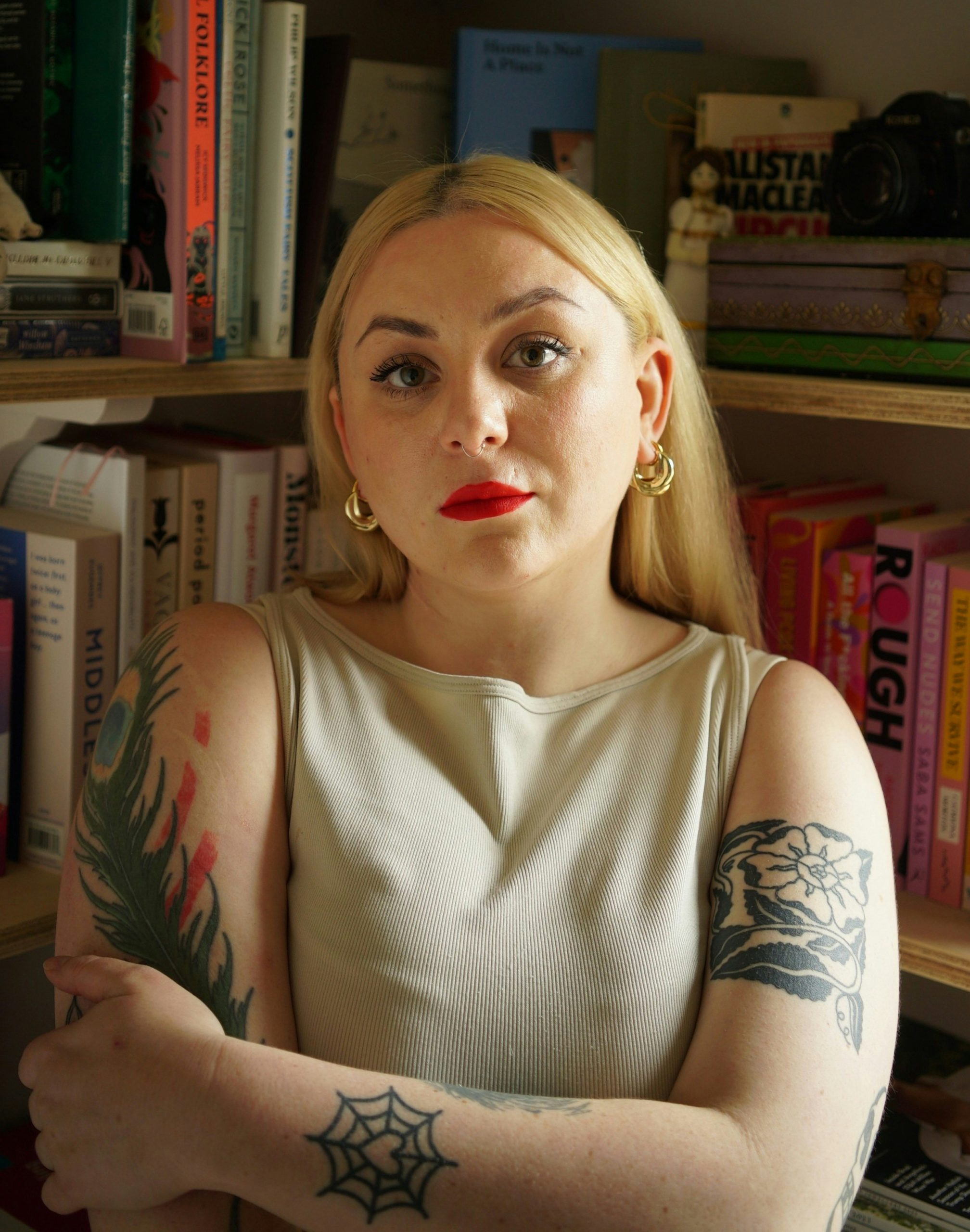
While going freelance, in principle, can give creatives more freedom, it requires extra mental power to stay on top of admin and accounts. With long Covid, says Baskerville, that becomes harder. “Getting paid on time is always part of the freelance drag, but it’s so incredibly difficult to keep on top of invoices and those supposed to be paying them within 30 days when you’re running on empty,” she explains.
“I’m fortunate to have some brilliant relationships with the editors I work with, and they are endlessly kind and forgiving if I need to extend a deadline or find the right person in finance to chase.” And while Baskerville admits her job is challenging, it’s equally fulfilling: “Honestly, without it, I don’t know what I’d do. Work gives me purpose, and I need purpose while coping with a disease that seeks to strip me of it.”
In just two short months, as the pandemic began to spread across Britain, Bath-based photographer Will Green lost both his parents to the virus and contracted long Covid himself. “I first noticed symptoms on March 16, 2020. I remember the date as my throat glands started to swell, and Covid was the leading story in the news,” he recalls. “The symptoms became worse quite rapidly and continued for at least a year and then started to improve.”
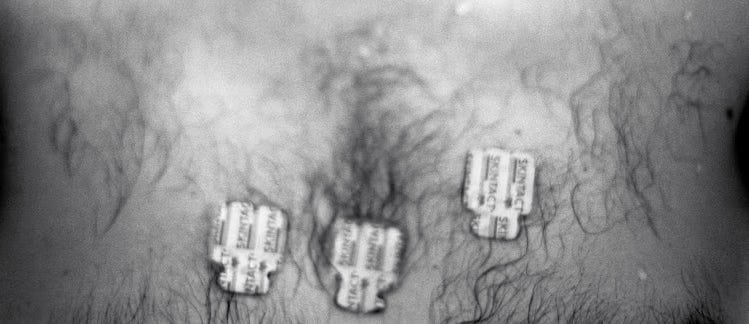
Grief-stricken and shackled to his home, Green began documenting the house around him. Reflections on love, loss and legacy, the black-and-white photographs he created eventually became a book titled Death and Other Belongings.
Green admits there were times when his experience of Covid was so bad that he wondered if he would survive. “Which sounds dramatic, but having spoken to other long Covid sufferers, it’s not unusual,” he says. “Also, later on, my wife admitted she was terrified I would not make it. At the time, no one really knew anything. It took a long time to get moving again, and a big part of moving forward was finding the mental ability not to be scared or fearful of getting worse again.”
De la Puente’s PoTS condition is made much worse with heat, making the summer season unbearable. “When our book came out in October, I was having more better days than bad days. I agreed to this incredibly ambitious book tour thinking I could do it … and now I have overdone it,” she says, before laughing: “Thank God there are two of us.”
Work gives me purpose, and I need purpose while coping with a disease that seeks to strip me of it
While De la Puente understands the need to put her health first, she doesn’t have the money to do so. “We don’t earn enough from The White Pube for me to be as sick as I am. There’s no help otherwise, no grants, no support,” she says. “I’ve just applied for Personal Independence Payment (PIP) again; it took me three years to get over the trauma of applying the first time.” This time around, De la Puente’s PIP application was successful, though only gives her £28.40 per week.
“I don’t think we live in a very caring country,” she reflects. “I don’t think a lot of countries are. Why should they put money behind people who are not profitable? When they can invest in things that do make them money? I’ve been radicalised over the past years.”
As an art critic with a published book to market, De la Puente must clearly communicate her extra needs with organisers of book launches and judging juries, but sometimes, her efforts fall on deaf ears. She recalls a recent two-day judging experience in a hot museum: “I told them … here are my access requirements. I’ve thought a lot about them. This is what I need in order to make it possible for me to do this.” However, when she got there, they had done “jackshit”. “I asked: I need to go lie down for 20 minutes. This chair is hurting me. Is there any way for me to lie down? They said: I’m not really sure … you could lie down behind this desk if you want?” she recalls. “I was so tired that I just did it.”
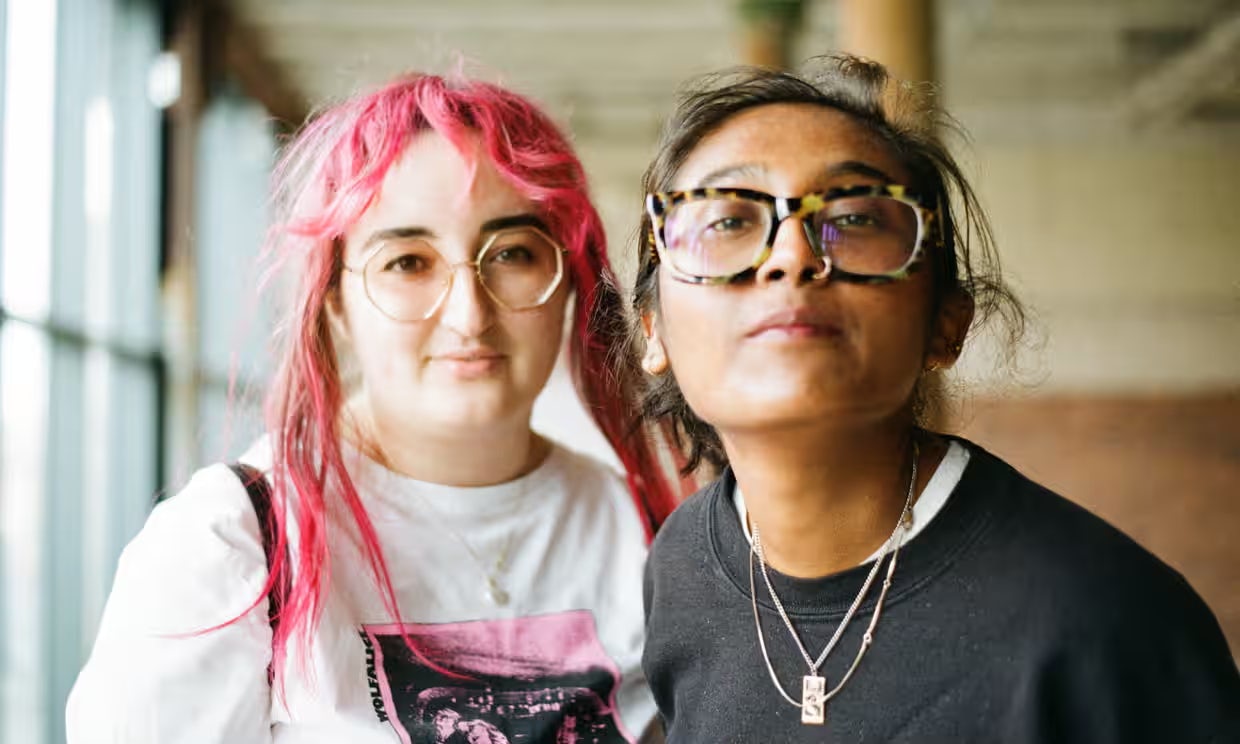
If dealing with the virus wasn’t hard enough, people coping with long Covid have to manage questioning attitudes towards it. Corin Baird, content strategy director at Page & Page Health, who was hospitalised with Covid in November 2020, says: “Other people I know have had some really unfair comments made about it, that it is an excuse for getting out of work.”
Baird likes to point sceptics towards a study he was involved in that was stopped due to funding. “I messaged the author and she said it was widespread and although no treatments have been found, at least there is something there that can prove the condition,” he says.
David Gibson’s journey with long Covid is a much more recent affair. Nine months after the initial virus wiped him out for three weeks, he feels like someone had taken his batteries out. As the digital director of Dept, his job involves overseeing and working on multiple projects with constant deadlines. “This can be exhausting with the symptoms I’m getting, and there are some weeks where all I can do is sort the kids out, perform the best I can at work, put the kids to bed, eat dinner and go to bed myself,” he says. “This means other areas of life have suffered massively, such as my social life and time with my wife.”
I’ve changed my lifestyle, walking a lot and getting more fresh air. I’m a keen hiker. Those types of things help clear the fatigued mind I’ve felt
Gibson says one of the hardest things with long Covid is that it’s “hidden” and once you get back to a certain recovery level people seem to forget that you’re unwell and load the responsibilities on you as if you are 100%. “This can be difficult to manage as you don’t want to let people down and feel like you’re beginning to bore or irritate people by bringing up long Covid,” he says.
For Theo Louca, founder and creative director of creative agency Rawww, part of the solution is that “you’ve just got to live with it”. Struck down with Covid early on, he still feels the repercussions of the virus today. Yet, turning long Covid on its head, the virus has weirdly made him more active than before. “I’m more of a naturalist in terms of trying to deal with it myself, rather than taking more medication,” he reflects. “I’ve changed my lifestyle, walking a lot and getting more fresh air. I’m a keen hiker. I’ve changed diets, accommodating fruit.”
Louca muses that the pace of life in the creative industry is so much faster these days than it was 20 years ago, but changing his lifestyle has helped him cope. “Those types of things help clear the fatigued mind I’ve felt. Ultimately switching off and connecting with nature, real air and just silence.”
@thewhitepube; @iambaskerville; @willgreenstudio; rawww.com; deptagency.com; pageandpage.uk.com
